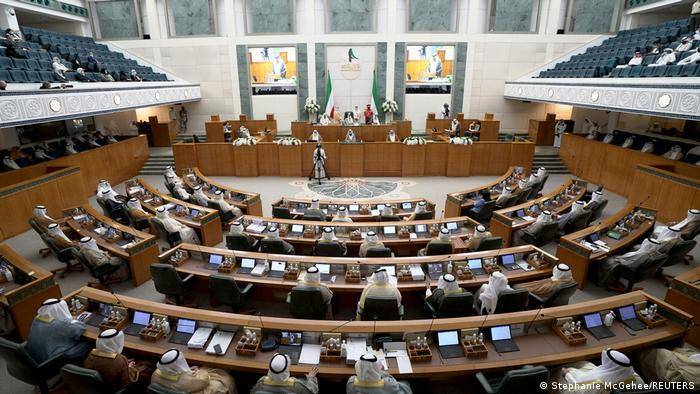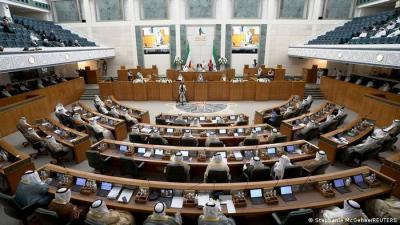The Kuwaiti National Assembly (parliament) approved today, Wednesday, the budget for the fiscal year 2023-2024, which includes a projected deficit of 6.8 billion dinars (22.13 billion dollars). Deputy Speaker Muhammad Al-Mutair announced that 47 members voted in favor of the budget, while 12 opposed it and two abstained from voting.
For his part, the Speaker of the National Assembly, Ahmad Al-Saadoun, confirmed that he would oppose any attempt to present any law on public debt until the government implements the necessary reforms, including combating corruption.
Finance Minister Saad Al-Barak told Reuters, "The first four months of the current fiscal year did not record a deficit." Regarding how to address the expected deficit in the budget in the coming months, Al-Barak noted, "We will study the financing issue generally (for the budget); we have a range of alternatives that we will consider."
During the session, Al-Barak urged the lawmakers to approve the budget, describing it as an "emergency budget" after a three-year pause during which the parliament was dissolved twice. He stated that Kuwait's 2035 strategy, which was approved years ago, has not been implemented, indicating that the government will work to develop it to begin in 2024 and extend to 2040 in order to diversify the economy. He emphasized that the government aims to provide 250,000 job opportunities over the next fifteen years.
Meanwhile, Minister of State for Cabinet Affairs and National Assembly Affairs Issa Al-Kandari confirmed that the government is continuing to correct the political, economic, and administrative course and combat corruption. The budget, which begins on April 1, includes total expected revenues of 19.5 billion dinars, adopting a price of $70 per barrel of oil, with expected oil revenues of 17.2 billion dinars. The total expected expenditures amount to 26.3 billion dinars.




